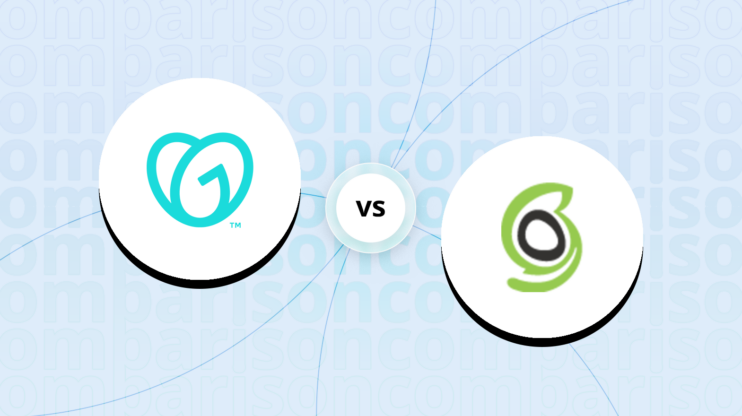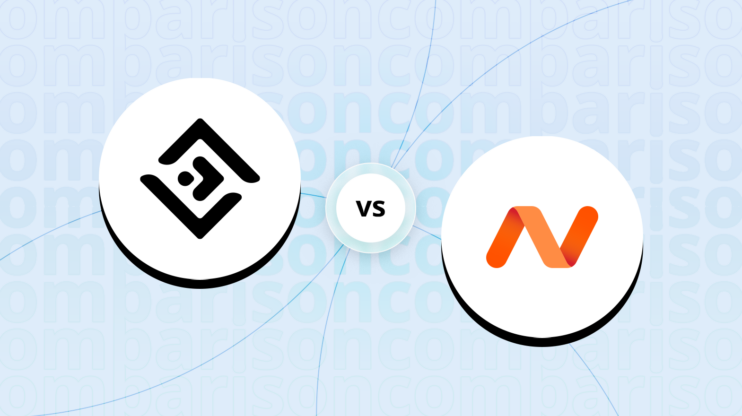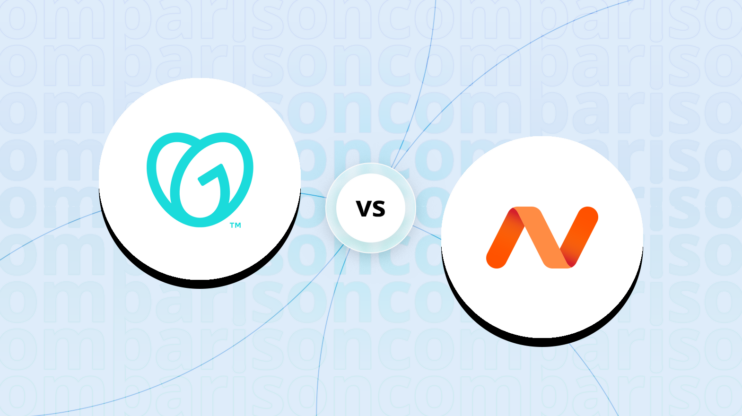Final verdict
Looking over Flywheel vs. Bluehost, it’s clear why both hosts are so popular. They have both hosted millions of
websites that run on WordPress for decades, building up a loyal customer base.
-
Flywheel (Overall grade: 8.4)
is tailored for users who prioritize WordPress-specific hosting. It boasts enhanced site performance through its custom FlyCache, CDN powered by Fastly, and auto-healing technology, which collectively ensure reliable and speedy website operations. Flywheel’s ease of use is further highlighted by its intuitive admin panel and specialized tools like Blueprints and Site Cloning, designed for agencies and developers. The platform also excels in customer support, offering personalized services and a comprehensive money-back guarantee. However, it does lack certain hosting types like shared and VPS hosting, which limits its versatility for different kinds of users.
Bluehost (Overall grade: 8.2)
shines in its diverse hosting options, including shared, VPS, dedicated, and cloud hosting. This flexibility allows users to scale their websites as needed while benefiting from features like SSD storage, built-in CDN, and AI-assisted website creation tools. Bluehost’s comprehensive user role management and solid security measures ensure efficient and safe website operations. Customer support is robust, with 24/7 live chat and phone assistance. Nonetheless, some users have reported issues with performance consistency and customer service reliability, making it less ideal for those who need uninterrupted service.
 Overall grade:8.2 |
 Overall grade:8.4 |
|
|---|---|---|
| Uptime and Availability | 9.0 | 9.7 |
| Hosting Performance | 8.9 | 8.2 |
| Hosting Security | 8.1 | 9.4 |
| Price | 8.1 | 8.1 |
| Hosting Features | 7.0 | 6.8 |
| Ease Of Setup | 8.6 | 8.9 |
| User Management | 8.0 | 7.8 |
| Customer Support | 7.9 | 8.5 |
| User feedback | 3.5/5 | 4.4/5 |
Hosting types offered
Both platforms provide a variety of hosting types, each designed to meet the different needs of users.
 |
 |
|
|---|---|---|
| Shared hosting | ||
| Cloud hosting | ||
| WordPress hosting | ||
| Ecommerce hosting | ||
| VPS hosting | ||
| Dedicated hosting |
Although both offer a variety of hosting plans tailored to different needs, in
certain cases, one platform may prove to be more suitable.
Detailed comparison
Uptime and availability
Evaluates the average uptime statistics, uptime guarantee and overall availability of the hosting
provider
Score Components:
- Uptime percentage (30%): evaluates the uptime statistics in given period of time
- Uptime guarantee (20%): Assesses if the platform offers an uptime guarantee and
whether the actual uptime matches the promised guarantee. - General performance (25%): Evaluates how fast is the average response time and overall
it’s stability. - Responsiveness (10%): Adaptability to different devices and screen sizes.
- Availability (25%): Reflects the total downtime and number of outages.
 9.0
9.0
 9.7
9.7
🏆 Winner Flywheel: Flywheel delivers exceptional uptime and availability, outpacing its competitors with superior performance.

Bluehost offers impressive uptime, consistently providing high reliability with near-perfect scores from various tests. The hosting provider maintains good server response times, managing traffic surges effectively. Their SLA offers credits for any network downtime, ensuring customer satisfaction.

Flywheel boasts a strong uptime guarantee backed by robust SLA terms, achieving 100% uptime in short-term tests. Its response time is notably fast, below the industry average, ensuring quick website performance. With a comprehensive support system and a 60-day money-back guarantee, Flywheel stands out in overall reliability and customer satisfaction.
Hosting performance
Score Components:
- Hosting speed (30%): This includes SSD quality, Load times, PageSpeed score ranges,
additional information on website speed, built-in plugins for performance enhancement, available caching
methods, and CPU/RAM options - CDN (20%): Considers whether CDN is available or not, whether it’s free or paid, and
the quality of the CDN service - Available data centers (30%): Evaluates the number of data centers and their locations
globally. - Scalibility (20%): Looks at whether elastic scaling is available, the process required
to scale (manual upgrade vs. automatic scaling), the presence of dedicated servers, and the costs
associated with scaling.
 8.9
8.9
 8.2
8.2
🏆 Winner: Bluehost: Renowned for high-performance and reliable web hosting services.
Bluehost and Flywheel are two well-regarded names in the hosting industry, but they cater to slightly different audiences. When it comes to general performance, Bluehost excels in providing top-speed services for WordPress with its SSD storage, built-in CDN, and optimized infrastructure that includes increased CPU frequency and scalable PHP workers. It guarantees 100% uptime for its cloud hosting plans, leveraging global data centers to boost site performance. Flywheel, on the other hand, focuses on speed as well with its Flywheel Cloud Platform and CDN powered by Fastly. The platform offers managed caching and auto-healing technology, which helps maintain high performance and reliability. However, Flywheel promises a slightly lower uptime of 99.9%.
Website Speed
Both Bluehost and Flywheel take website speed very seriously. Bluehost provides world-class speed for WordPress sites, owing to its SSD storage and CDN. The built-in CDN optimizes images and delivers edge server caching to reduce page load times globally. Flywheel matches this with its performance-oriented infrastructure, custom FlyCache technology, and server-level caching. Flywheel also uses super-fast servers and works directly with customers to further enhance site speed. While both providers offer comparable speed, Bluehost’s use of SSD storage and global data centers gives it a bit of an edge.
Scalability
When it comes to scalability, Bluehost offers a range of hosting options including shared, VPS, dedicated, and cloud hosting. These plans ensure you can scale your website as needed, although upgrading plans is manual. Flywheel provides compute-optimized dedicated servers tailored for WooCommerce to boost site speed, but detailed information on cost and automatic scaling is not available. Bluehost provides more flexibility with its range of hosting plans, whereas Flywheel’s focus appears to be more on optimizing existing resources for performance.
Hosting security
and regulatory requirements
Score Components:
- Technical security measures (40%): This includes encryption, firewalls, DDoS
protection, secure configurations, server monitoring, access control and availability of security addons
(e.g Sitelock security). - Operational security measures (30%): Encompasses data privacy, backups and data
redundancy. - Compliance and certifications (20%): Adherence to legal and regulatory requirements
(e.g., GDPR, HIPAA) and possession of certifications (e.g., ISO 27001, SOC 2). - Business and reliability (10%): Factors in the provider’s reputation, uptime
guarantees, and customer support.
 8.1
8.1
 9.4
9.4
🏆 Winner Flywheel: A secure hosting provider with advanced compliance measures and superior technical security.
Both Bluehost and Flywheel, have notable differences in their approaches to technical and operational security, as well as in their compliance with regulations.
Technical security measures:
Bluehost offers free and premium SSL certificates, daily backups, DDoS protection, a web application firewall, and malware scanning. It supports automated WordPress updates and provides email security measures. Flywheel also provides free SSL certificates and supports third-party SSLs. It includes Fastly WAF for application-layer protection, intelligent IP blocking, and plugin security alerts. Flywheel has auto-healing technology and free malware removal, and backs up data nightly.
Operational security measures:
Bluehost ensures data integrity through automated backups, DDoS protection, two-factor authentication, and traffic encryption. Its daily backups are powered by Jetpack. Malware scanning and 2FA offer additional user protection. On the other hand, Flywheel focuses on intelligent IP blocking, plugin security alerts, and a role-based permission model to control data access. Its auto-healing technology and nightly backups further strengthen operational security.
Compliance and certifications:
Bluehost complies with GDPR but does not support HIPAA compliance. Shared Hosting accounts require additional steps for PCI compliance, while VPS and Dedicated Servers can achieve PCI compliance with assistance. Flywheel meets various regulatory standards, including HIPAA, GDPR, GCP, SOC 2, and 21 CFR Part 11, making it suitable for handling sensitive data and regulatory requirements.
 |
 |
|
|---|---|---|
SSL certificate |
Free and premium |
Free and third-party |
Additional security features |
Automated backups, DDoS protection, malware scanning, 2FA |
IP blocking, plugin alerts, auto-healing, free malware removal |
PHP versions |
PHP Workers (vCPUs) |
PHP 8.1 Ready |
GDPR compliance |
Yes |
Yes |
HIPAA compliance |
Not specified |
Yes |
PCI compliance |
Limited |
Not specified |
Hosting features
Score Components:
- Domains (20%): Assesses the availability of a free domain, domain purchase options, and
pricing - Email (15%): Considers if the provider offers full email hosting, or is reselling
third-party service, and if the email is only transactional or not - Website builder (15%): Checks if website builder is available, and it’s user
friendliness and overall the level of customization allowed. - Staging environment (20%): Determines if a staging environment is available, allowing
for testing changes before going live. - FTP & SFTP accounts (10%): Evaluates if and how easily users can access FTP and
SFTP accounts - Git and SSH access (20%): Assess whether Git is integrated into the hosting service and
if SSH access is provided
 7.0
7.0
 6.8
6.8
🏆 Winner
Bluehost: Offers a diverse array of hosting options catered to different needs.
Bluehost and Flywheel both provide robust hosting solutions, yet they cater to distinct user needs and preferences. Bluehost offers a more extensive variety of hosting types, including shared, VPS, dedicated, and cloud hosting. This versatility means that users can find a plan that aligns with their specific requirements, whether they need basic website management or advanced resources. Bluehost also features a free AI site creation tool and free Yoast SEO, making it user-friendly for beginners looking to build and optimize their websites. Most of Bluehost’s plans include a free domain for the first year, which can be particularly valuable for startups.
Flywheel focuses exclusively on WordPress hosting, providing an optimized environment for WordPress sites. Flywheel enhances user experience with managed caching, software updates, and FlyCache, which offers custom caching exclusions for popular WordPress plugins and themes. A notable highlight is Flywheel’s 14-day free demo sites, allowing users to test their site’s functionality before committing. Additionally, Flywheel offers unique workflow tools like Blueprints and Site Cloning, facilitating efficient project management for developers and agencies. Though it lacks a built-in website builder, Flywheel’s focus on simplicity and WordPress-specific features makes it a strong contender for those specialized needs.
 |
 |
|
|---|---|---|
Free domain |
Yes, for the first year |
No |
Free SSL |
Yes |
Yes |
Email hosting |
Yes, through Google Workspace |
No |
Website builder |
Yes |
No |
Staging environment |
No |
Yes |
FTP & SFTP accounts |
Yes |
Yes, SFTP |
Git and SSH access |
No |
Yes |
Free backup |
Yes, for the first year |
Yes |
Money back guarantee |
Yes |
Yes |
a location.
As a result in rare cases the features mentioned here can differ from the ones you see on their websites.
Both providers support a range of users from beginners to experts with user-friendly website builders and WordPress staging areas. However, in terms of developer tools, both Bluehost and Flywheel offer robust options including SSH access, support for multiple programming languages, and Git for version control, thus appealing to developers looking for advanced capabilities.
Email services:
Email services at Bluehost are provided through Google Workspace, allowing users to run email campaigns and manage professional communications. Flywheel does not provide email hosting but recommends using third-party providers like Google Apps for email needs. Flywheel focuses on transactional email capabilities and does not include native email hosting services.
Price
Score Components:
- Plan value (40%): What each pricing tier offers.
- Transparency and clarity (30%): Clearness of pricing structures.
- Flexibility of plans (20%): Range of options to suit different budgets.
- Hidden costs (10%): Additional expenses not included in the plan.
 8.1
8.1
 8.1
8.1
🏆 Winner Flywheel: Flywheel offers an extensive feature set in their hosting plans, making them especially suitable for those seeking optimized WordPress solutions.
Evaluating the pricing of plans among various hosting providers can be complex due to their differing pricing and renewal strategies. Additionally, certain plans require annual commitments, which adds to the difficulty of making comparisons. The prices listed are based on monthly commitments; plans requiring annual commitments are indicated. Additionally, although some providers offer identical plans for WordPress and shared hosting, we have created separate tables for each to enhance clarity.
Bluehost’s diverse hosting offerings include shared, VPS, dedicated, cloud, and WooCommerce hosting plans, with prices ranging from $2.95/mo to $119.99/mo. Flywheel, focused solely on WordPress hosting, provides four main plans—Tiny, Starter, Freelance, and Agency—priced between $13 to $242 per month. Flywheel’s custom-tailored plans offer additional features such as performance insights and managed plugin updates, making them a compelling choice for WordPress developers and agencies. Bluehost’s plans include a broader range of hosting types but extend only to 50 websites, while Flywheel’s Agency plan supports up to 30 sites and the customizable option for more.
 |
 |
|---|---|
|
Online store $26.99
Online Store Website, 100GB SSD Storage, Free Domain 1st Year, Free SSL, Professional Email (Free Trial), Yoast SEO, Jetpack Daily Backups, Automated WordPress Updates, Secure Online Payments, Unlimited Products. Value for price:8.5
|
Tiny plan $13.00
1 WordPress site, 5GB storage, 20GB bandwidth, 5,000 monthly visits, 24/7 chat support. Value for price:7.0
|
|
Online store + Marketplace $29.99
Includes all features of Online Store plan plus additional tools for selling across multiple marketplaces. Value for price:8.7
|
Starter plan $25.00
1 WordPress site, 10GB storage, 50GB bandwidth, 25,000 monthly visits, 24/7 chat support. Value for price:8.0
|
|
Freelance plan $96.00
Up to 10 sites, 20GB storage, 200GB bandwidth, 100,000 monthly visits, 24/7 chat support. Value for price:8.2
|
|
|
Agency plan $242.00
Up to 30 sites, 50GB storage, 500GB bandwidth, 400,000 monthly visits, dedicated account manager, quarterly business reviews. Value for price:8.5
|
 |
 |
|---|---|
|
Basic $10.99
1 Website, 10GB SSD Storage, Free CDN, Free Domain 1st Year, Free SSL 1st Year, Chat Support, Free AI Tools, Daily Website Backups (Free 1st Year), Malware Scanning. Value for price:8.0
|
|
|
Plus $14.99
Unlimited Websites, Unmetered SSD Storage, Free CDN, Free Domain 1st Year, Free SSL 1st Year, Chat Support, Free AI Tools, Daily Website Backups (Free 1st Year), Malware Scanning. Value for price:8.4
|
|
|
Choice Plus $18.99
Unlimited Websites, Unmetered SSD Storage, Free CDN, Free Domain 1st Year, Free SSL 1st Year, Chat Support, Free AI Tools, Daily Website Backups (Free 1st Year), Domain Privacy (Free 1st Year), Malware Scanning. Value for price:8.5
|
|
|
Pro $28.99
Unlimited Websites, Unmetered SSD Storage, Free CDN, Free Domain 1st Year, Free SSL 1st Year, Chat Support, Free AI Tools, Daily Website Backups (Free 1st Year), Domain Privacy (Free 1st Year), Malware Scanning, Optimized for High Traffic. Value for price:8.7
|
 |
 |
|---|---|
|
Cloud 1 $79.99
1 Website, 10GB SSD Storage, 2 vCPU Compute Power, 100% Network Uptime, 24/7 Priority Support Voice Chat. Value for price:7.5
|
|
|
Cloud 10 $109.99
10 Websites, 125GB SSD Storage, 20 vCPU Compute Power, 100% Network Uptime, 24/7 Priority Support Voice Chat. Value for price:8.0
|
|
|
Cloud 25 $169.99
25 Websites, 175GB SSD Storage, 75 vCPU Compute Power, 100% Network Uptime, 24/7 Priority Support Voice Chat. Value for price:8.5
|
|
|
Cloud 50 $249.99
50 Websites, 225GB SSD Storage, 150 vCPU Compute Power, 100% Network Uptime, 24/7 Priority Support Voice Chat. Value for price:8.8
|
As a result in rare cases the prices displayed here can differ from the ones you see on their websites.
Enterprise plans
Both providers offer advanced plans suitable for enterprises. Bluehost provides dedicated hosting options starting at $79.99/month with essential server resources and enhanced security features. Flywheel’s Agency plan, costing $242/month, supports up to 30 sites and offers additional team collaboration tools and 24/7 support. For larger custom needs, Flywheel offers scalable plans with dedicated customer support and customization, making it an excellent choice for enterprise WordPress hosting.
Ease of setup
platform.
Score Components:
- Site migration (25%): Assesses whether the provider offers tools for site migration,
either automated or manual, and whether these services are free or require a fee. - Admin panel usability (35%): Evaluates the type of admin panel provided, such as the
standard cPanel or a custom solution, focusing on its accessibility and user-friendliness for both
technical and non-technical users. - Setup features (20%): Examines the availability and ease of use of various setup
features, including FTP accounts, file managers, email account setup, PHPMyAdmin, and easy CDN
configuration. - Help center quality (20%): Measures the quality and accessibility of the provider’s
help center resources, including articles and tutorials.
 8.6
8.6
 8.9
8.9
🏆 Winner Flywheel: Simplified migrations and local development environments.
Bluehost uses a combination of AI WonderSuite tools and a guided setup process to make things easier for WordPress users. Their automatic WordPress installation and easy onboarding via smart AI tools make it very accessible for both novice and expert users. Bluehost employs a standard cPanel that provides a familiar environment for those who have used web hosting before. This blend of AI-driven and traditional control makes Bluehost accessible and user-friendly for those looking to get started quickly without diving deep into technical details.
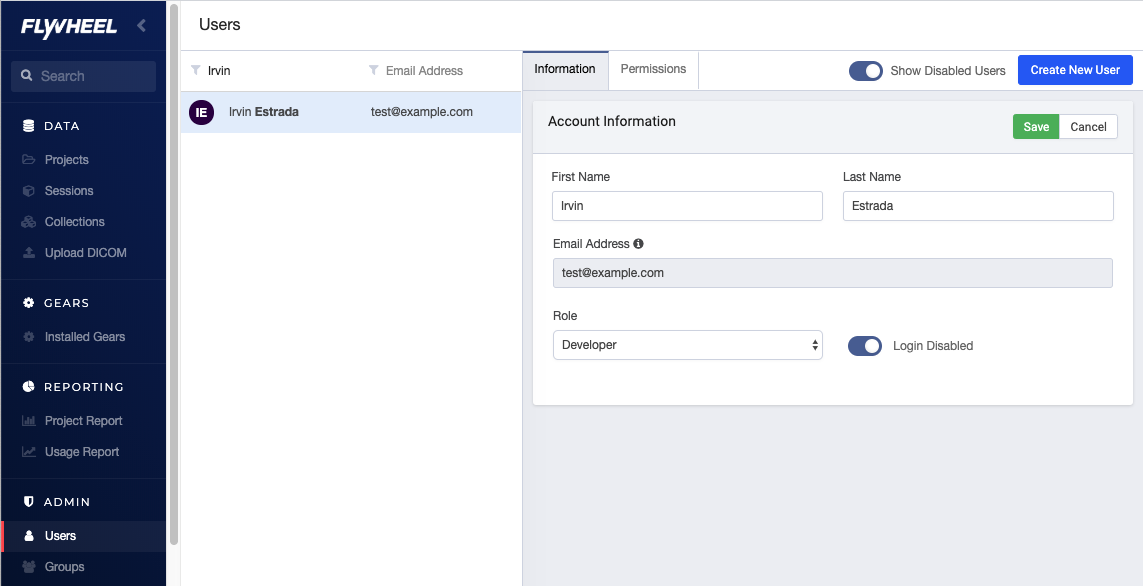
Flywheel’s admin panel is tailored specifically for WordPress with a focus on simplicity and usability. Unlike Bluehost’s standard cPanel, Flywheel offers a custom dashboard that’s streamlined for managing WordPress sites. Flywheel’s panel is intuitive, making it suitable for both technical and non-technical users. The local development environment feature stands out, allowing developers to create sites locally before pushing them live. The ease of setup through features such as Blueprints and site cloning further simplifies the admin experience.
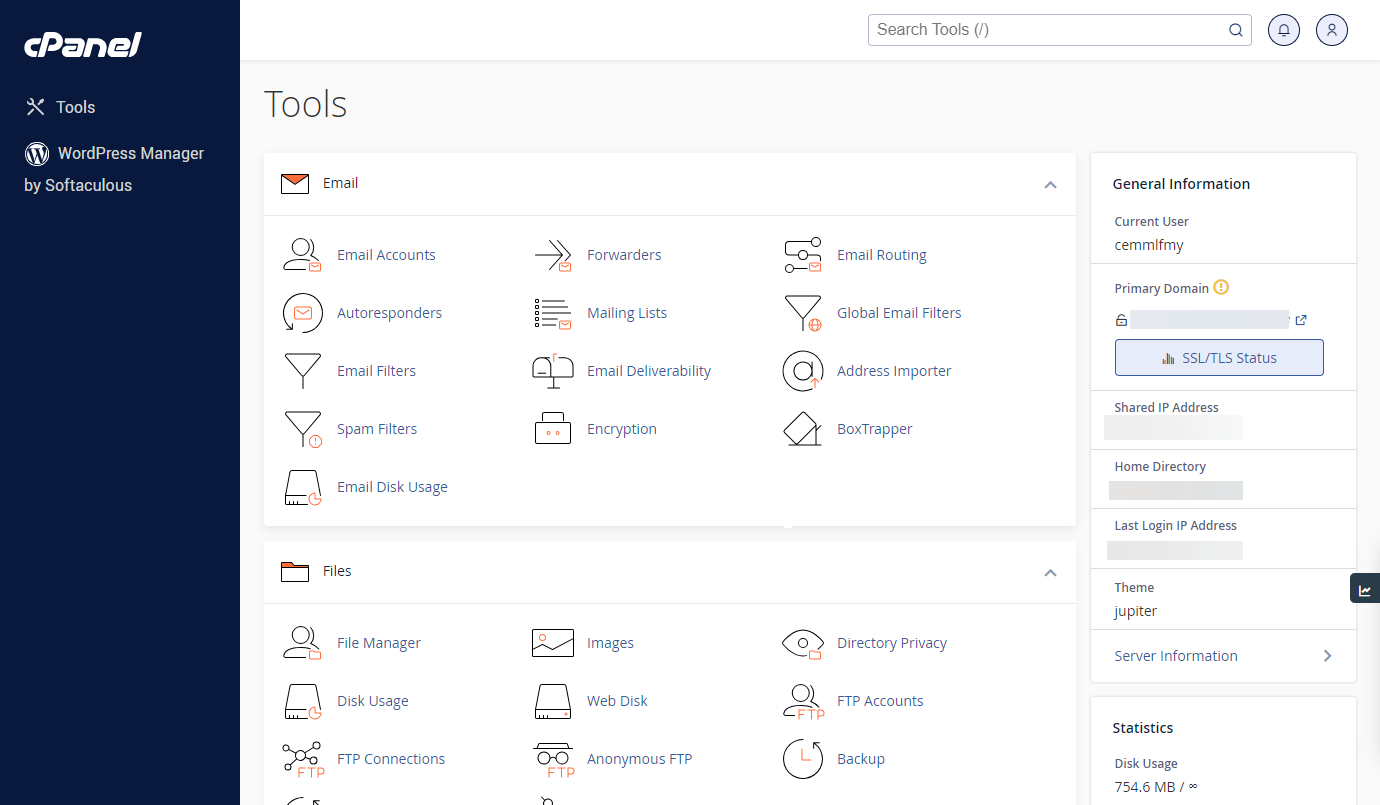
Migration tools are a critical feature when transferring existing sites. Bluehost supports website migrations but typically requires users to manually migrate their sites unless they opt for a paid service. Flywheel offers free migrations for all your sites, removing the hassle and potential cost associated with this process. Their migration dashboard also allows users to submit, prioritize, and monitor the progress, making the overall experience more seamless.
Comparing the help centers, Bluehost provides a comprehensive knowledge base with articles covering setup, configuration, and troubleshooting. There’s 24/7 expert support available through chat, phone, and email, ensuring users have multiple channels to seek help. Flywheel also offers extensive help documentation and 24/7/365 chat support. Phone support is available but limited to business hours. The additional resources, such as dedicated account managers and performance insights, give Flywheel an edge in personalized support.
User management
accessibility.
Score Components:
- Role customization (40%): Flexibility in creating and defining user roles and
permissions. - Ease of management (30%): User interface and tools for managing users.
- Access control (20%): Effectiveness of access control measures for different user
levels. - Scalability (10%): Ability to manage a growing number of users efficiently.
 8.0
8.0
 7.8
7.8
🏆 Winner
Bluehost: Offering comprehensive user role management with detailed permissions and extensive support.
When comparing Bluehost and Flywheel on user management, Bluehost provides more granular control over user roles, featuring three distinct roles—Primary Contact, Admin Contact, and Tech Contact—each with defined permissions for tasks like editing payment information, managing products, and administering domains. In contrast, Flywheel uses a single Collaborator role with varying levels of access, such as full site management and SFTP access but limited ability in billing and site deletion tasks. Bluehost’s delineation of user roles offers more tailored control aspects catering to different administrative needs.
Bluehost and Flywheel offer user-friendly interfaces for managing users. Bluehost provides an Account Manager section where users can be added or edited with clarity, and features like profile icons and drop-down menus make roles easy to navigate. Flywheel’s dashboard is similarly intuitive, with simple add/remove collaborator buttons and straightforward navigation to the SFTP and Database Manager. Both platforms make user role administration accessible, though Bluehost’s interface offers slightly more versatility with its additional role segregation.
In terms of access control and scalability, Bluehost excels by allowing the Primary Contact to manage all aspects of user permissions, ensuring clear delineation of responsibilities as the user base expands. Besides, admins can also make significant decisions, promoting seamless scalability in operations. Flywheel, with its primary reliance on the Collaborator role, manages growth effectively but may face limitations in nuanced permission control as more users are added. Bluehost offers a more structured hierarchy, which, in growing environments, ensures better clarity and division of duties.
Bluehost user roles table:
| Role | Description | Access highlights |
|---|---|---|
| Primary Contact | Main account holder managing overall activities. | Edit account info, payment, user roles, purchase and manage services, renewals, WHOIS info edits. |
| Admin Contact | Administers settings, permissions, and installations. | Manage jobs except for primary contact-specific tasks, payment edits, purchases, and services. |
| Tech Contact | Technical manager focusing on configurations. | Manages technical aspects, API access, product management, and WHOIS info for admin and tech roles. |
Flywheel user roles table:
| Role | Description | Access highlights |
|---|---|---|
| Collaborator | Site manager sans billing duties. | Full dashboard access, SFTP login, database management, WordPress admin access, adding/removing collaborators. |
Customer support
hosting provider.
Score Components:
- Support communication channels (30%): Measures the variety of customer support types
provided (live chat, chatbot, email, phone, etc.) - Availability (20%): Assesses the availability hours for each channel, including 24/7
support options. - Technical support quality (30%): Assesses whether the provider offers comprehensive
technical support, including hardware upgrades (e.g., HDD to SSD), software installations, and web
server configuration changes. - Enterprise support (20%): Checks if there are dedicated or priority support services
for enterprise-level customers.
 7.9
7.9
 8.5
8.5
🏆 Winner Flywheel: Superior support channels, personalized service, and a longer money-back guarantee set Flywheel apart.
 |
 |
|
|---|---|---|
Phone support |
||
Live chat support |
||
| Chatbot | ||
Email/ticket support |
||
Enterprise support (dedicated agent, priority support) |

Bluehost and Flywheel both provide strong customer support, but they have key differences. Bluehost offers 24/7 live chat support and phone support from 7am-12am EST. They emphasize live chat and phone support by eliminating ticket-based support. They promise expedited support for dedicated hosting and provide a wide range of resources in their knowledge base. However, customers report mixed experiences, with some noting long wait times and pushy upselling.

Flywheel excels in customer support by offering 24/7 chat support and phone support during weekday business hours. They supplement this with email/ticket support and a dedicated account manager for personalized service. Flywheel also provides free site migrations, monthly performance insights, and a 60-day money-back guarantee. Customer reviews highlight Flywheel’s responsive and efficient support, making it a strong contender for those needing comprehensive assistance.
User feedback
User feedback on Bluehost as a hosting provider is highly mixed. On the positive side, many users commend their affordable pricing, ease of use with WordPress integration, and the comprehensive range of features such as free domain names, SSL, and excellent customer support. However, numerous reviews criticize the service for frequent outages, technical support issues, hidden fees, and unreliable performance, which have significantly impacted users’ businesses. Additionally, complaints about complicated navigation, aggressive upselling, and a steep learning curve for first-time users are common. While some users find Bluehost reliable and cost-effective, others have had severely negative experiences, citing problems like non-functional websites, billing issues, and inadequate customer service.
Flywheel is highly regarded for its intuitive user interface, efficient WordPress management, and reliable speed and performance. Customers appreciate the ease of site migration, robust support, and included features like SSL and backups. However, some users highlight concerns over recent pricing changes, slower customer service response times, and issues with email limits and staging environments. Despite a few drawbacks, Flywheel is praised for its agency-oriented focus, making it a strong choice for professionals managing multiple client websites.
FAQ
Which platform is better suited for hosting WordPress websites?
Both Bluehost and Flywheel are tailored for WordPress hosting. Flywheel edges out with enhanced site performance and specialized tools for agencies and developers. However, both offer robust features for WordPress, making them strong contenders.
Which hosting service offers better security features?
Bluehost offers free and premium SSL certificates, daily backups, DDoS protection, a web application firewall, and malware scanning. Flywheel provides free SSL certificates, Fastly WAF, intelligent IP blocking, and plugin security alerts, along with auto-healing technology and free malware removal. Both have comprehensive security measures but differ in specifics.
Which platform offers better customer support?
Flywheel excels with 24/7 chat support, phone support during business hours, email/ticket support, and a dedicated account manager. Bluehost offers 24/7 live chat and phone support but lacks ticket-based support and personalized service. Flywheel’s personalized services and free site migrations make it slightly better.
What are the major differences in pricing and value between Bluehost and Flywheel?
Bluehost offers a range of hosting plans, including shared and VPS, starting at $10.99/month, with features like a free domain for the first year. Flywheel focuses on WordPress hosting with plans starting at $13/month and unique features like FlyCache and performance insights. Flywheel’s annual pricing includes two months free, while certain Bluehost plans offer first-year features at no cost.
Which service is more suitable for hosting a high-traffic website?
Bluehost is more suitable for high-traffic websites due to its dedicated and VPS hosting options, which provide better scalability and resources. Flywheel, while offering advanced CDN and auto-healing technology for performance, lacks the dedicated and VPS hosting types.
The making of this blog
We followed a clear, step-by-step process to write and research this article.












